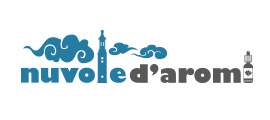Brand Strategy, what it is and why it is so important

In a context characterized by increasing competition and a rapidly changing and competitive world, it becomes essential to develop an effective strategy to stand out in your market sector and gain visibility and recognition in the mind of the average consumer. The latter is often bombarded with new brands and has limited capacity to remember them. Therefore, it is crucial to examine this concept more deeply.
Brand Strategy for Post-Pandemic Recovery
During the pandemic, we witnessed a contraction in consumption in some sectors, an increase in digitalization, and growing concerns that influenced moods and purchasing behaviors. This period highlighted the importance of the relationship between product, marketing, and brand identity.
Marketing serves to generate traffic and conversions, but for success, it is necessary to clearly define the following points:
- Assets (website, app, etc.) should guide the user and help them find what they are looking for.
- Communication should express the brand's identity through various types of content.
- The product should reflect the brand's values.
- The brand's identity should reveal its mission, vision, and values.
Companies that have experienced a decline in sales are called to reflect on which aspect of this pyramid might be lacking.
The pandemic forced us to reflect on our role in the world, and the same goes for companies. Many have been called to reconsider or strengthen their values, seeking to contribute to the circular economy and create useful products. In other words, to do their part.
This involves defining or redefining the brand's identity (brand identity) and building the brand image around this identity (brand strategy). This process ensures that all aspects of the business (content, user experience, website, product, marketing, communication, etc.) are consistent and robust.
What Is Brand Strategy and Why Is It Important?
Brand Strategy is primarily a long-term strategic plan for developing a brand capable of generating value, communicating with customers, and achieving tangible results. When well-structured, this strategy can convey positive emotions to consumers while elevating the brand in the market, increasing its visibility.
A strong brand identity can increase engagement with the target audience and, consequently, positively impact company revenues. Beyond the product offered, the logo, website, and all aspects related to the brand, it represents intangible value perceived by consumers. This aspect often distinguishes successful brands from less relevant ones. Therefore, branding is considered an art that needs to be fully understood and developed in all its details to promote growth and recognition in every aspect. It contributes to defining how customers perceive the brand and its products, giving them distinctive value and market positioning.
Perception of your brand among customers is the determining factor in differentiating it from competitors. Therefore, it is necessary to carefully study your brand strategy to increase sales and customer loyalty.
Brand Strategy for Brand Identity
Brand identity is what allows consumers to recognize the brand among many others. Therefore, it is essential that the logo graphics and packaging are consistent with the company's style and philosophy to communicate unique and positive intangible values. Attention to detail is crucial, as the visual aspect makes a difference.
The Importance of Brand Strategy in Brand Awareness (Including in Marketing)
To succeed, a brand must have unique, easily recognizable, pronounceable (not only in its language but also for foreigners), and memorable characteristics. Therefore, planning an effective strategy to stand out from competitors and gain recognition among consumers is crucial. This long-term investment may entail initial high costs in marketing, but if well-structured, it will bring positive and targeted results. Careful management and adaptation to the audience's needs are equally important.
In-depth understanding of the customer and adapting the product or service to their needs are the basis for a brand that takes into account its customers' needs, leaving a positive impression in their minds.
Brand Positioning
Every day, numerous brands compete to be recognizable and attract the interest of the public. Brand positioning is an essential strategy for achieving this goal. It involves analyzing the positions of brands on the market to understand how consumers perceive them. This analysis helps companies develop a differentiation strategy that highlights the distinctive benefit that only their brand can offer. This strategy is the basis for corporate communication, which aims to effectively convey the brand's distinctive elements and differentiate it in the minds of consumers from the competition.
To implement an effective brand positioning strategy, it is important to:
- Identify a specific target audience (a market segment) to focus on.
- Understand the competition, identifying their strengths.
- Define the unique characteristics and advantages of your brand that drive consumers to prefer it over others.
Brand positioning is fundamental for planning all marketing activities, as it influences how the brand is communicated and perceived.
Brand Positioning Strategies
The main brand positioning strategies include:
1. Product Differentiation
Emphasizing the unique features of the product or service that distinguish it from the competition, such as quality, design, or functionality.
2. Price Differentiation
Competing by offering more competitive prices than competitors or, conversely, positioning as a luxury brand.
3. Brand Image Differentiation
Creating a distinctive and recognizable brand image through branding and marketing.
Developing an Effective Brand Strategy in the Digital Era
In the digital era, some key considerations include:
1. Define the Target Audience
Building a solid audience in an era where consumers are informed requires a deep understanding of the target audience.
2. Communicate Value
Stand out by communicating the brand and product's value, not just relying on price.
3. Use Online Marketing Tools
Utilize social media, SEO, and online advertising to reach the audience effectively.
4. Maintain Consistency
Ensure that the brand's image, communication, and customer experience are consistent across all communication channels.
How to Develop an Effective Brand Strategy
To develop an effective brand strategy, it's essential to consider several key factors, including the goal, emotional aspect, and consistency.
1. Brand Identity Definition
What makes your brand unique? What are your values? What is your mission? What are the strengths of your brand, and what do you want it to represent to consumers? What is your value proposition? It all starts here.
2. Goal Definition
A crucial step in creating a brand strategy is defining the goal clearly. This should explain why the company operates in a specific industry and focuses on how to meet customer needs. The goal should reflect the brand's mission and vision.
3. Consistency
Consistency is a fundamental element in brand strategy. It's important to offer products and services that align with the company's values. Maintaining consistency in communication and customer experience contributes to building trust and the brand's reputation.
4. Emotional Impact
Creating an emotional connection between the company and consumers is of great importance. This connection can be fostered through engaging stories (storytelling) or unique experiences offered by the brand. Continuously monitoring and nurturing this emotional connection is essential for strengthening customer loyalty over time.
5. Target Audience Identification
Thoroughly understanding your target audience is crucial. This includes defining who your ideal customers are, what their needs and preferences are, and how the brand can uniquely satisfy them.
6. Competitor Analysis
Understanding competitors is equally important. In-depth competitor analysis can reveal strengths and weaknesses to leverage for differentiation.
7. Unique Selling Proposition (USP)
USP is one of the key elements in the brand strategy. It should differentiate the brand from competitors, offering a compelling reason for purchase. It can be based on company values, important brand goals, unique stories, or distinctive product features.
8. Emphasizing Quality
The quality of products or services is a powerful leverage point. Today's customers are demanding and seek products and services that are superior to the market average. Investing in quality can foster customer loyalty.
9. Personalized Experience
Offering a personalized experience to customers can make the brand stand out. This can include tailoring products or services to specific customer needs or creating a unique shopping experience.
10. Community Engagement
Recognizing the value of the customer community is fundamental. Rewarding customer loyalty with prizes, gifts, or charitable initiatives can contribute to strengthening the relationship between the brand and its customer base.
11. Creating a Strategic Content Plan
Content is one of the best ways to communicate your brand message. Create a content plan that aligns with your brand identity and engages all major touchpoints with the audience.
12. Employee Involvement
To ensure brand consistency, even the people working for the company must share its values.
13. Flexibility
A strategy is not set in stone; in fact, if you see something isn't working, don't be afraid to change direction. You must constantly find new ways to engage your community and keep their attention on your brand.
In conclusion, an effective brand strategy requires a deep understanding of the brand's goals, values, and audience, along with a continuous commitment to building an emotional connection with customers. Maintaining consistency and differentiation from competitors are key to the long-term success of the brand.
Brand Strategy: Inspiring Examples
Successful examples of brand strategies can inspire and provide interesting insights for your company. Let's take a closer look at six examples of brand strategies that have produced significant results.
Apple's Brand Strategy: A Brand, An Experience
Elegant design, technological innovation. These are certainly the two elements that have helped Apple become a benchmark, build a solid reputation, and achieve unparalleled customer loyalty. However, these two elements alone are not enough to transform a brand into a benchmark. To understand Apple's success, you need to look at the work done on its unique and inimitable brand identity and the consistent brand experience in every aspect of its business, from products to advertising to stores.
It all began with the famous slogan "Think Different," which laid the foundation for a long-lasting vision and a truly different positioning.
Nike's Brand Strategy: The Mentor
When deep branding work is done at the core of marketing campaigns, results become visible (and measurable). Nike is the prime example of how a well-planned campaign can contribute to consolidating a strong brand identity.
The famous slogan "Just Do It" and the involvement of top athletes as brand ambassadors created a powerful and motivating image, amplifying the resonance of the brand's messages. Nike is now considered a mentor brand.
Coca-Cola's Brand Strategy and Global Campaigns
Coca-Cola is another company that has successfully created a strong brand identity through its marketing campaigns.
The company has used memorable slogans like "The Real Thing" that spoke to a generation while reinforcing the authenticity of the original Cola. Furthermore, Coca-Cola has managed to build a universal brand image through its sponsorship of global events like the Olympics since 1928.
Bottega Veneta's Brand Strategy: Elegance Recognized by Two Initials
Bottega Veneta is an Italian company known for its elegant and discreet style. The company has developed an effective branding strategy with the motto "When your own initials are enough," which emphasizes the high quality of its products and its iconic craftsmanship (the weave), two elements that ensure brand recognition. Bottega Veneta's positioning among luxury brands is reinforced by marketing campaigns that use world-famous actors and models (such as Kate Moss) as testimonials, emphasizing the luxurious and refined image of the brand.
Lego's Brand Strategy: Celebrating Creativity
Lego is an example of how a branding strategy based on creativity and imagination can be successful. The brand has built its reputation with the motto "Invent, Build, Play," encouraging children to explore their imagination through play.
The brand's campaigns themselves celebrate creativity and the fantastic worlds children can build with their imaginations, brick by brick.
Patagonia's Brand Strategy: A Strong Mission
It's not just any outdoor clothing brand. Patagonia has managed to create a deep gap between itself and competitors. How? Through marketing campaigns that loudly proclaim the brand's environmental mission and commitment to promoting a sustainable lifestyle. One example among many is the "Don't Buy This Jacket" campaign, in which Patagonia encourages consumers to make responsible purchases. This campaign has contributed to solidifying a unique brand identity, building customer loyalty, and increasing brand loyalty.
When you subscribe to the blog, we will send you an e-mail when there are new updates on the site so you wouldn't miss them.
By accepting you will be accessing a service provided by a third-party external to https://www.insightadv.it/


































































Comments